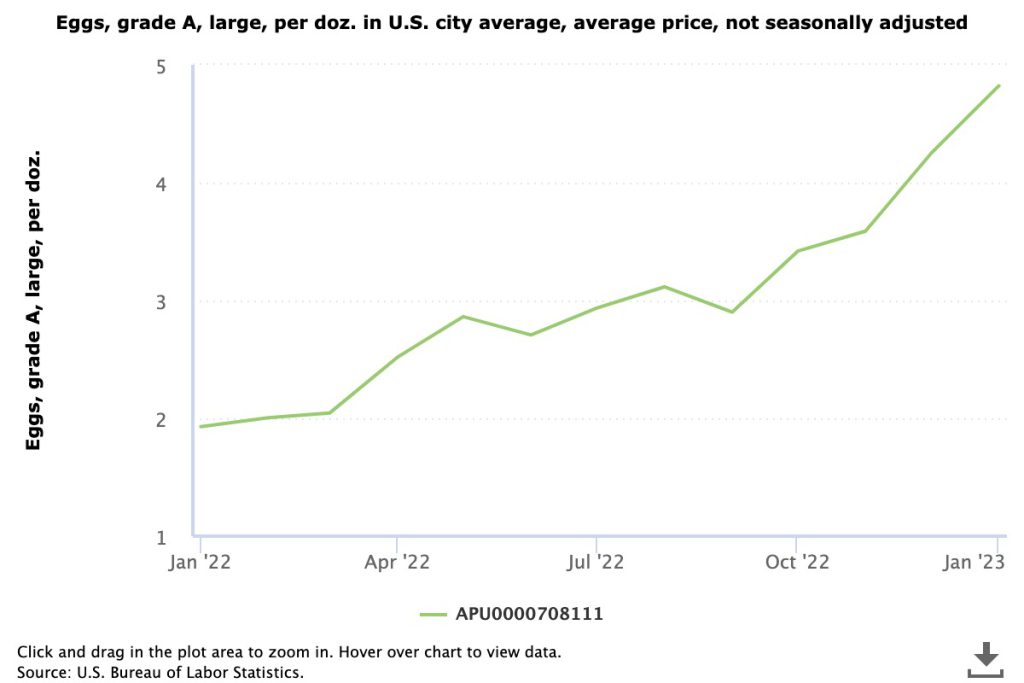By Samantha Roberts
The Egg Markets Overview, a weekly publication by the United States Department of Agriculture (USDA), published on February 24, 2023, marked the year anniversary of the Avian influenza outbreak. This outbreak caused higher prices at local grocery stores, impacting consumer behavior toward eggs.
Avian Influenza, known as bird flu, becomes deadly to poultry flocks. According to the USDA, Avian influenza viruses are classified as either low pathogenic, with minimal symptoms or no presentation, or highly pathogenic. Based on their genetics, domesticated poultry infected by this disease may appear asymptomatic or show minimal signs of infection. Their possible lack of symptoms makes diagnosing these animals quite tricky.
In February 2023, fourteen states were affected by this disease, according to the USDA. In the past twelve months, 9,974 birds got infected. The last confirmed case in New York was reported, on February 15, 2023, affecting about 250 birds. The New York City Health Department describes several symptoms the birds may experience, such as lack of energy, misshapen eggs, and sudden death.

If birds continuously develop this illness, what does that mean for production? Since the trend is of low supply and higher demand, prices will rise. In Figure 1, the inflation of eggs rapidly increased. The graph shows in the United States, grade A, large eggs per dozen cost about $1.929 in January 2022. Most recently, eggs cost $4.823 in January 2023. The USDA claims in New York, cartons (price to retailers), in cents per dozen eggs, were $3.13 on January 27, 2023. Those projections have decreased, but that price is high for consumers. They are exceptionally high, considering that the price in January 2022 for a dozen eggs averaged $1.93. The Tuesday Tips describe that in New York, grocery stores’ food prices increased 12% from November 2021 to November 2022, and prices might increase another 3-4% in 2023.
The Department of Consumer Protection (DCP) in New York suggests three tips for saving money in this economy. Guidelines show to consider planning your meals. Prepare a list of ingredients for the week. The planning allows consumers to nix any impulsive purchases. The next tip is to look for deals. It’s easier said than done, but clipping coupons, becoming an ardent follower of store circulars, and buying items in bulk could save you a couple of bucks and will ensure consumers get their money’s worth. The last tip is to shop strategically for food. Modern-day problems call for modern-day solutions. Not only should you prepare a written or digital grocery list. Individuals should take inventory of what they have in their homes. When customers compare these lists, it lets them know what is necessary for the week. These tips can help shoppers stay on track and save money.
Eggflation has had a significant impact on the egg industry. Eggs have been a staple for most American cuisine. Supermarkets have been trying to stabilize their prices, yet they are not likely to see a dip in these costs because the disease still infects poultry flocks. The causes started with infected chickens, affecting prices and the consumer’s behavior because of Avian Influenza.


